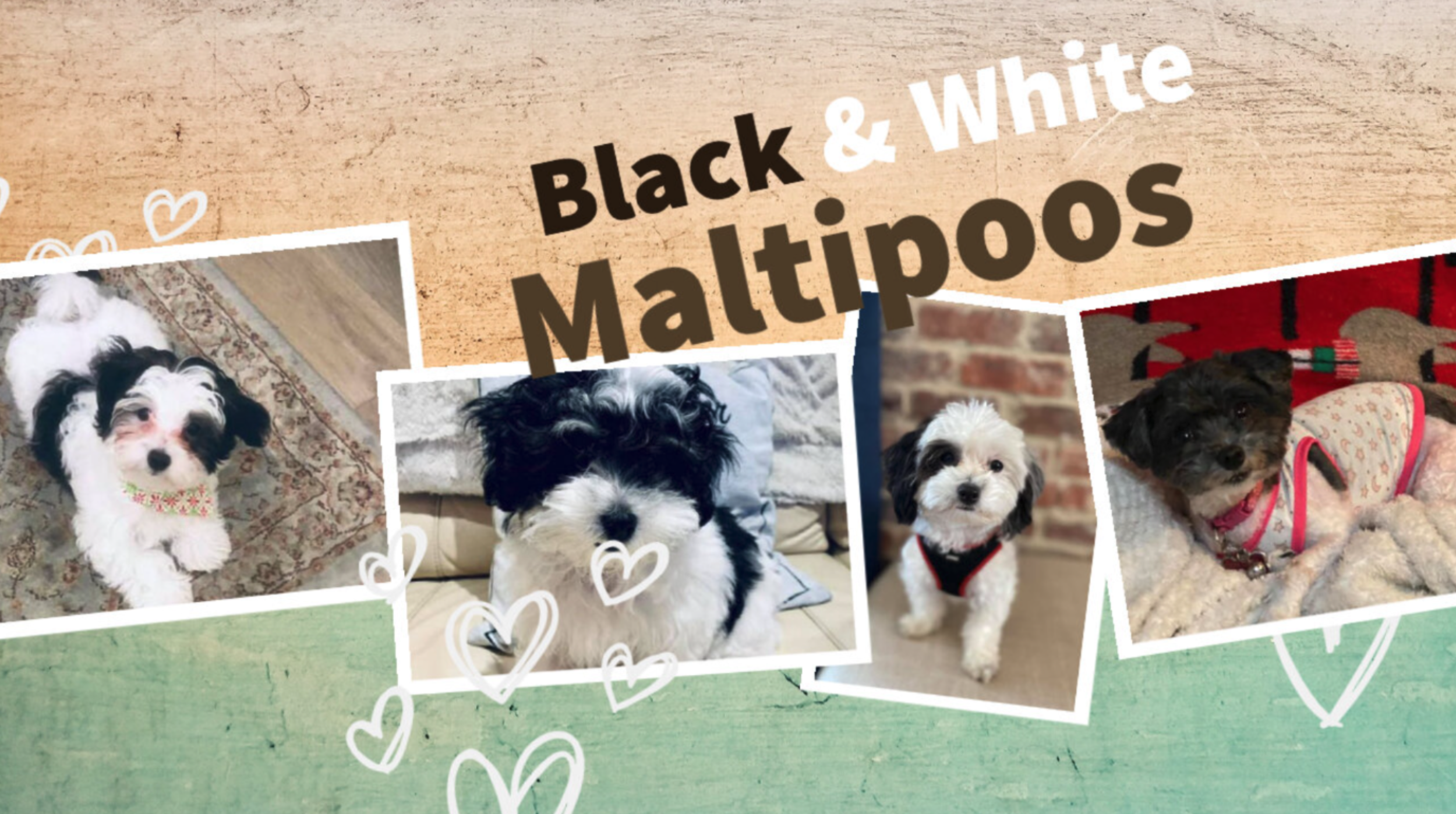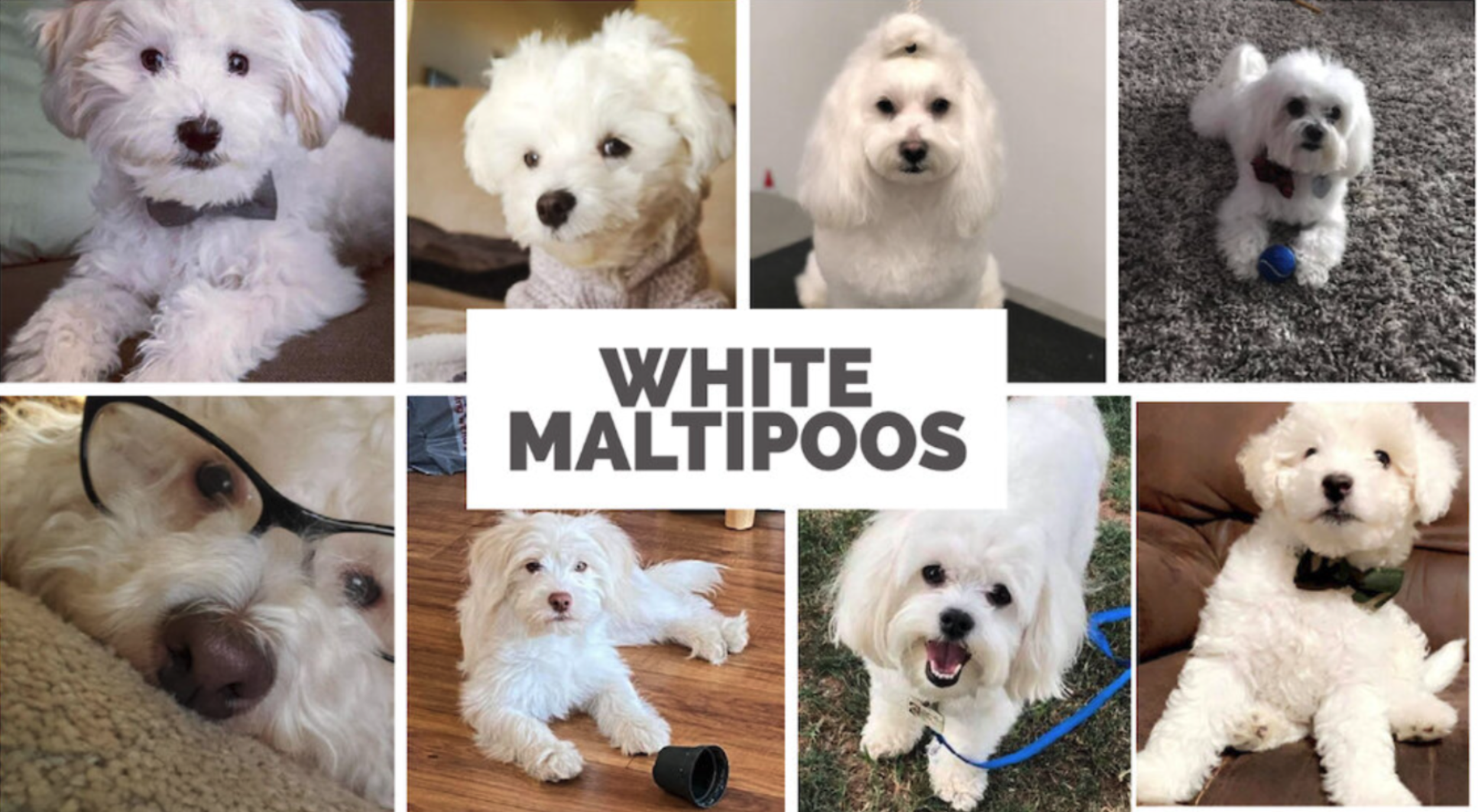A Comprehensive Guide to Feeding Your Cockapoo Puppy
Welcome to this comprehensive guide designed to assist pet parents in understanding and fulfilling the unique dietary needs of their Cockapoo puppies. As an endearing crossbreed between the energetic Cocker Spaniel and the intelligent Poodle, Cockapoos require a specialized diet that balances proteins, carbohydrates, fats, vitamins, and minerals in appropriate proportions to support their boundless energy, mental acuity, and maintain their distinct low-shedding coat.
Designed for both new and experienced pet owners, this guide provides a thorough analysis of the dietary needs of a Cockapoo puppy. You'll gain insights into their meal frequencies, portion sizes, and the correct way to transition them onto new foods. Additionally, we'll explore various diet types, including commercial, homemade, raw, and grain-free, assessing their pros and cons for Cockapoos. Healthy feeding practices greatly enhance the well-being and longevity of your Cockapoo, making this guide a vital tool in their care.
Cockapoo Nutritional Requirements
Like all dogs, Cockapoos require a balanced diet to maintain their health and vitality. However, Cockapoos, being a hybrid breed between Cocker Spaniels and Poodles, may have some unique nutritional needs.
Role of Nutrients in a Cockapoo's Diet
Protein
Protein is the primary nutrient required by all dogs, including Cockapoos. It serves as the building block for muscles, tissues, skin, and fur. It's crucial for growth in puppies and maintenance in adults. Cockapoos should get about 22-28% of their calories from high-quality protein sources like chicken, beef, turkey, fish, or lamb.
Fats
Fats provide the most concentrated form of energy for dogs. They supply essential fatty acids and help in the absorption of certain vitamins. They are also necessary for keeping a Cockapoo's coat healthy and shiny. An ideal diet for a Cockapoo should include about 14-18% fat, from sources like fish oil and flaxseed.
Carbohydrates
While not strictly necessary, carbohydrates can provide a good source of quick energy and fiber for dogs. Fiber is especially important for digestive health. Healthy sources of carbohydrates for Cockapoos can include sweet potatoes, brown rice, oatmeal, and vegetables.
Vitamins and Minerals
Vitamins and minerals are crucial for various functions in a dog's body, including bone development, nerve function, hormone regulation, and immune system support. A well-rounded diet should provide all the necessary vitamins and minerals a Cockapoo needs. Some key ones include Vitamin A, Vitamin D, calcium, and phosphorus.
Water
Water is perhaps the most crucial nutrient for all living beings, including Cockapoos. It helps regulate body temperature, aids in digestion, and flushes toxins out of the body. Always ensure your Cockapoo has fresh, clean water available.
What Human Foods Can Cockapoos Eat?
Cockapoos can safely consume various human foods as long as they're prepared without harmful additives, such as spices, salts, or oils. Here's a short list:
Peanut Butter: High in protein and healthy fats, ensure it does not contain xylitol, a harmful sweetener for dogs.
Cooked Chicken: An excellent source of lean protein that's easy on their digestive system.
Carrots: Can be given either cooked or raw, and are rich in vitamins and fiber.
Blueberries: Full of antioxidants and fiber, good for health.
Pumpkin: Great for digestive health, but be sure it's unseasoned and not sweetened.
Green Beans: These are high in fiber and low in calories, making them a healthy snack.
Sweet Potatoes: When cooked, they provide ample dietary fiber, vitamins, and minerals.
Keep in mind, these foods should supplement your Cockapoo's balanced diet and not substitute their primary nutrition source. Always check with your vet before introducing significant dietary changes.
Aligning Nutritional Needs with Dog Food, Treats, and Supplements
High-quality commercial dog food that is specifically designed for small or medium breeds should meet most of your Cockapoo's nutritional needs. Look for products that list a quality source of protein as the first ingredient, and avoid those with artificial preservatives, flavors, or excessive fillers.
In addition to their main diet, Cockapoos may also benefit from healthy treats and supplements. Treats should be used sparingly and should not make up more than 10% of their daily caloric intake. Choose treats that are low in fat and calories and high in protein or fiber.
For supplements, you may want to consider ones containing Omega-3 fatty acids for skin and coat health, probiotics for digestive health, or joint supplements for older Cockapoos. Always consult with your vet before starting any new supplement regimen.
In conclusion, a balanced diet is essential for keeping your Cockapoo happy and healthy. Paying attention to their unique nutritional requirements will help ensure they live a long, vibrant life. Remember, though, that every dog is an individual, and what works best for one may not work as well for another. Always consult with your vet if you have any concerns about your Cockapoo's nutrition.
Establishing a Feeding Schedule for Your Cockapoo
A well-organized feeding schedule is crucial for a pet's overall health, particularly for a Cockapoo, a delightful breed that's a mix of Cocker Spaniel and Poodle. Given their lively, energetic nature, they need a nutritious diet to fuel their vivacious lifestyle. However, how much to feed them and when to feed them isn't always clear-cut. Here's a guide to help you establish a beneficial feeding schedule for your Cockapoo.
Importance of a Regular Feeding Schedule
Just like humans, Cockapoos thrive on routine, and a regular feeding schedule is part of this. Feeding your dog at the same times each day helps keep their digestive system regular and healthy. It can also aid in potty training and can provide a sense of security and predictability, reducing stress and anxiety.
How Often Should I Feed My Cockapoo?
The feeding schedule and amount of food for your Cockapoo will depend on their age, size, and activity level. Here are some general guidelines:
8-12 Weeks: This is a crucial growth period for your Cockapoo puppy. They typically need to be fed four times a day, with meals evenly spaced throughout the day. Puppies have smaller stomachs but need more energy than adult dogs, so smaller, more frequent meals are more appropriate at this age.
3-6 Months: As your puppy grows, they still need to be fed three to four times a day. At this stage, you may notice your Cockapoo’s appetite increase as they enter a rapid growth phase. Ensure you're feeding them a balanced diet that caters to their energy and nutritional needs.
6-12 Months: Once your Cockapoo reaches six months of age, you can reduce feedings to two or three times per day. Portion control becomes important at this stage to avoid overfeeding and potential obesity.
Tailoring the Feeding Schedule
While the age-based guidelines provide a good starting point, it's important to tailor the feeding schedule and quantity based on your dog's unique needs. Consider the following:
Activity Level: An active Cockapoo who regularly exercises will need more food than a less active one. If your dog is highly energetic, you may need to increase food portions or add an extra feeding time.
Overall Health: If your Cockapoo has health issues, they may require a special diet or feeding schedule. Always follow your vet's advice if your dog has health conditions.
Vet's Advice: Each Cockapoo is unique, and your vet can provide the best advice tailored to your pet's needs. Regular check-ups will help your vet monitor your pet's weight, growth, and overall health and make dietary recommendations accordingly.
Remember, a feeding schedule is not just about when and how often you feed your Cockapoo, but also about what you feed them. A balanced diet is crucial for your pet's health and happiness. Choose a high-quality dog food that meets all their nutritional needs and always have fresh water available. Consistency and routine, paired with love and attention, will ensure your Cockapoo is healthy and thriving.
Determining Proper Feeding Portions for Cockapoos
Feeding your Cockapoo properly is one of the key factors in ensuring their healthy growth and overall wellness. Cockapoos are a crossbreed between Cocker Spaniels and Poodles, and they come in varying sizes, which means their food portions can also differ. Determining the right amount of food depends on various factors including your dog’s weight, age, activity level, and overall health.
Factors Influencing Portion Sizes
Weight: The weight of your Cockapoo is a crucial factor in determining the food portion size. Larger Cockapoos will require more food than smaller ones. However, it’s not just about the size, but also the ideal weight for their size. Overweight dogs may need less food to help them lose weight, while underweight dogs may need more.
Age: Puppies generally require more food per pound of body weight compared to adult dogs because they are growing and developing. Senior dogs may need less food if they are less active, but their diet may also need to include specific nutrients to help maintain health as they age.
Activity Level: Highly active Cockapoos require more food than less active ones. If your Cockapoo engages in lots of physical activities or exercises, they will need additional nutrition to replenish the energy they burn.
Health: Certain health conditions may require special dietary considerations, like allergies or diseases like diabetes, which can influence the amount and type of food your Cockapoo should eat.
General Guidelines for Portion Sizes Based on Weight
When it comes to feeding your Cockapoo, a general guideline to start with is to feed them about 40-50 calories per pound of body weight for adult dogs, and about twice that for puppies. So, for example, if your adult Cockapoo weighs 15 pounds, they would need approximately 600-750 calories per day.
Remember, these are just starting points. Individual dogs may require more or less depending on the factors discussed above. Also, the type of food you’re feeding them matters. High-quality dog food tends to be more nutrient-dense, so you might not need as much volume compared to a lower-quality food.
How Much Should I Feed My Cockapoo?
For Cockapoos, consider the following general feeding guide based on their weight:
5-10 lbs: 1/2 to 3/4 cup per day
10-15 lbs: 3/4 to 1 cup per day
15-20 lbs: 1 to 1 1/2 cups per day
20-30 lbs: 1 1/2 to 2 cups per day
30-40 lbs: 2 to 2 1/2 cups per day
These are just guidelines, and actual feeding amounts should be adjusted based on your Cockapoo's age, activity level, and overall health. The caloric content can vary between different brands or types of food, so these measurements may not translate exactly. It's always best to consult with your vet to get the most accurate feeding recommendations for your Cockapoo. They can provide advice tailored to your dog's specific needs and help monitor their growth and weight to ensure they're receiving the right amount of food.
Need for Regular Vet Consultation and Monitoring of Puppy's Health
It’s essential to have regular consultations with your veterinarian to adjust your Cockapoo's feeding plan as needed. Your vet can perform a body condition score to help determine whether your Cockapoo is at an ideal weight, overweight, or underweight. They can also monitor for any health conditions that might necessitate a change in diet.
In addition, your vet can provide guidance on the type of food that's best for your Cockapoo’s specific needs, whether it's a puppy formula, adult food, or a diet for seniors.
In conclusion, while these guidelines can help you start on the right track, each Cockapoo is unique and may require adjustments based on their individual circumstances. Regular vet check-ups and careful observation of your pet's health and behavior are crucial for maintaining their optimal health through proper nutrition.
What Food Should a Cockapoo Eat?
Our Top Pick: Small & Medium Breed Puppy Food by Life's Abundance
The nutritional health of your Cockapoo puppy is a top priority and crucial for their growth and development. It's why we highly recommend the Small & Medium Breed Puppy Food from Life's Abundance.
Reasons for Recommending Life's Abundance: Small & Medium Breed Puppy Food for Cockapoos
1. Designed Specifically for Small and Medium Breeds:
Life's Abundance has tailored this puppy food to cater to the specific nutritional needs of small and medium-breed puppies. Cockapoos, being a crossbreed of the Cocker Spaniel and the Poodle, fall within this category and hence stand to benefit immensely from this specialized formulation.
2. Premium Quality Ingredients:
This brand emphasizes high-quality, natural ingredients. They avoid artificial preservatives and colors which can be harmful to your pup's health in the long run. Instead, they focus on real chicken meals as the first ingredient, ensuring high-quality protein.
3. Veterinary Formulated:
The Small & Medium Breed Puppy Food is formulated by a team of vets, ensuring that it meets all the nutritional requirements necessary for the proper growth and development of your puppy.
Nutrient Content and Benefits of This Food
1. High-Quality Protein:
The first ingredient in this food is real chicken meal, providing essential amino acids for muscle development and maintenance. Protein is especially crucial for growing puppies as they require it for tissue repair and to fuel their high energy levels.
2. Healthy Fats:
The inclusion of chicken fat and fish meal ensures your Cockapoo gets the Omega-3 and Omega-6 fatty acids necessary for healthy skin and coat. The DHA from fish meal is crucial for brain and eye development.
3. Balanced Carbohydrates:
The recipe includes wholesome grains like ground brown rice and oat groats which provide energy and are gentle on a puppy's developing digestive system.
4. Essential Vitamins and Minerals:
It also includes a variety of fruits and vegetables, such as apples, blueberries, and carrots, which are excellent sources of essential vitamins and minerals. These nutrients boost the immune system and overall health of your puppy.
Gradual Transition When Changing Puppy's Food
While Life's Abundance Small & Medium Breed Puppy Food is a top-tier choice for your Cockapoo, remember that any change in diet should be done gradually to prevent digestive upset.
Here is a simple guide to transitioning your puppy's food:
Day 1-2: Mix 25% of the new food with 75% of the old food.
Day 3-4: Gradually increase the new food to 50% and decrease the old food to 50%.
Day 5-6: The mix should now be 75% of the new food with 25% of the old food.
Day 7: Your puppy's meal should now consist of 100% of the new food.
This slow transition will help your pup's digestive system adapt to the new diet without causing any discomfort or digestive issues. If your puppy shows any signs of digestive upset or disinterest in the food during the transition, consult your vet immediately.
Life's Abundance Small & Medium Breed Puppy Food aims to provide the optimal nutrients necessary for your Cockapoo's growth and development. By prioritizing premium ingredients, specific dietary formulation, and veterinary advice, this puppy food offers a substantial nutritional foundation for your puppy's health and wellness.
Tips for Transitioning Your Cockapoo's Food
Just like humans, Cockapoos can experience digestive discomfort if their food is abruptly changed. It's crucial to transition them from their old diet to the new one gradually. Start by mixing a small amount of the new food with the old food, gradually increasing the proportion of new food over the course of 7-10 days. This slow transition helps your pet adjust to the new flavors and nutrient content and minimizes potential digestive upset.
However, if you notice signs of digestive distress like vomiting, diarrhea, or loss of appetite during this period, it's important to consult with your veterinarian. The new food may not be suiting your Cockapoo, or there might be another underlying health issue.
Utilizing Treats and Supplements in Your Cockapoo's Diet
Treats and supplements can play a significant role in your Cockapoo's overall nutrition and training. Treats, such as Blue Buffalo Bits, are not only tasty but also low in calories and rich in antioxidants, making them a healthy choice for training rewards.
Supplements, such as those by NuVet Labs, can provide your Cockapoo with the necessary vitamins and minerals that may not be present in adequate amounts in their main diet. However, always consult with your vet before introducing any new supplements into your pet's diet.
Recommended Treats for Training: Blue Buffalo Bits
One recommended treat is Blue Buffalo Bits. They're made with real meat as the first ingredient, providing your Cockapoo with high-quality protein. Furthermore, these treats are free from corn, wheat, and soy, reducing the risk of food allergies and intolerance. They also contain omega 3 & 6 fatty acids for a healthy coat and skin, which is particularly important for Cockapoos, known for their distinctive curly coats.
Recommended Supplements for Health: NuVet Labs Supplements
As for supplements, consider NuVet Labs Supplements. These supplements are designed to provide a comprehensive blend of vitamins, minerals, antioxidants, amino acids, and other nutrients essential for your Cockapoo's health. They are known to support the immune system, promote healthy skin and coat, and contribute to overall well-being.
Navigating Common Feeding Issues with Cockapoos
As an owner of a Cockapoo, one of your primary responsibilities is to ensure that your dog has a healthy and balanced diet. However, just like humans, dogs can also face a range of feeding issues. Here are some of the most common feeding problems that Cockapoo owners experience and tips on how to navigate them.
1. Overfeeding
Overfeeding is a common issue among many dog owners. Cockapoos are no exception, especially given their energetic and playful nature which might be mistaken for constant hunger. Overfeeding can lead to obesity, which may result in various health issues like diabetes, arthritis, and heart disease.
Solution: Create a feeding schedule and stick to it. Cockapoos generally require around 40 calories per pound of body weight each day, although this can vary depending on their age, size, and activity level. Always measure your dog's food and limit treats to no more than 10% of their daily caloric intake. Regular vet check-ups can help monitor your Cockapoo's weight and adjust feeding if necessary.
2. Underfeeding
On the other side of the spectrum, underfeeding can also be an issue, resulting in malnutrition and low energy levels.
Solution: Understanding your Cockapoo's nutritional needs and providing them with a balanced diet is essential. Consult with your vet to determine the right amount of food your dog should be getting. It might be helpful to use a dog food calculator or follow feeding guides provided by reputable dog food brands.
3. Picky Eating
Cockapoos are known to be picky eaters at times. They may refuse to eat certain foods or show less interest in their meals.
Solution: Variety is key when dealing with picky eaters. Try adding different healthy foods into their diet, such as lean meats, fruits, and vegetables. Make sure to introduce new foods slowly to avoid upsetting their stomach. If your Cockapoo continues to be a picky eater, it may be worth discussing with a vet as this could be a sign of dental issues or other underlying health problems.
4. Rapid Eating
Some Cockapoos have a tendency to eat their food too quickly. This can cause issues such as choking, gagging, or even a serious condition known as bloat.
Solution: Using a slow-feeder bowl or food puzzle can help slow down your Cockapoos eating pace. These tools make your dog work a bit harder to get their food, which in turn slows down their eating. Regularly scheduled meals, rather than free feeding, can also help regulate the pace at which your dog eats.
5. Food Allergies
Cockapoos may develop food allergies or intolerances, which can result in symptoms like itching, digestive issues, and skin problems.
Solution: If you suspect your Cockapoo has a food allergy, consult your vet. They may recommend an elimination diet to help pinpoint the problematic ingredient. Once identified, you can seek out dog food brands that offer hypoallergenic options or provide a diet that avoids the allergenic ingredient.
In conclusion, addressing feeding issues in Cockapoos or any breed requires an understanding of their specific dietary needs, attention to their eating habits, and open communication with your vet. By being proactive and attentive, you can help ensure that your Cockapoo enjoys a healthy and satisfying diet.
Food Items That Should Be Avoided for Cockapoos
While Cockapoos are known for their love of food, not all human foods are safe for them to consume. Below, we have compiled a list of common food items that should never be given to your Cockapoo, or any dog breed for that matter. Consuming these can lead to serious health issues, and in some cases, even prove fatal.
Chocolate: The theobromine in chocolate can cause various symptoms like vomiting, diarrhea, tremors, abnormal heart rhythm, seizures, and even death.
Grapes and Raisins: These can cause sudden kidney failure in dogs. Even a small amount can make a dog ill.
Onions and Garlic: These vegetables, along with chives and leeks, contain a substance that can damage your dog's red blood cells and cause anemia.
Xylitol: This artificial sweetener is often found in candy, gum, and certain baked goods. It can lead to a rapid drop in your dog's blood sugar levels and can cause liver failure.
Alcohol: Alcohol of any kind can cause symptoms in dogs like vomiting, diarrhea, decreased coordination, central nervous system depression, difficulty breathing, tremors, and even death.
Caffeine: Foods and drinks containing caffeine can cause restlessness, rapid breathing, heart palpitations, muscle tremors, and seizures in dogs.
Macadamia Nuts: These nuts are known to cause symptoms like weakness, depression, vomiting, tremors, and hyperthermia in dogs.
Avocados: The persin in avocados can cause vomiting and diarrhea in dogs.
If you suspect that your Cockapoo has ingested any of these items, it's essential to take immediate action. Contact your local vet or a pet poison helpline as soon as possible. It's always better to be safe than sorry when it comes to the health and well-being of your beloved pet. Always be careful with what your pet consumes and try to keep these harmful items out of their reach.
Conclusion: Prioritizing Your Cockapoo's Nutritional Health
The health and happiness of your Cockapoo largely depend on their diet. By paying close attention to their nutritional needs, consulting your vet regularly, and introducing new foods and supplements safely, you can ensure your Cockapoo lives a long, healthy life.
Frequently Asked Questions
Q: Can cockapoos eat scrambled eggs?
A: Yes, Cockapoos can eat scrambled eggs. Ensure they're cooked without seasonings, oils, or butter which can upset their stomach. Eggs are a great source of protein for dogs.
Q: Are bananas good for cockapoos?
A: Yes, bananas are safe and beneficial for Cockapoos. They are packed with essential nutrients like potassium, vitamins, and fiber, which can contribute to your dog's overall health. You can serve bananas to your Cockapoo by mashing them or mixing them with a bit of peanut butter for a tasty snack. However, due to their high sugar content, bananas should be given in moderation.
Q: Can cockapoos have mashed potatoes?
A: Yes, Cockapoos can safely eat mashed potatoes. They provide a good source of potassium and carbohydrates. However, ensure that the potatoes are cooked, and avoid adding seasonings or ingredients like butter, salt, or onions that can be harmful to dogs.















